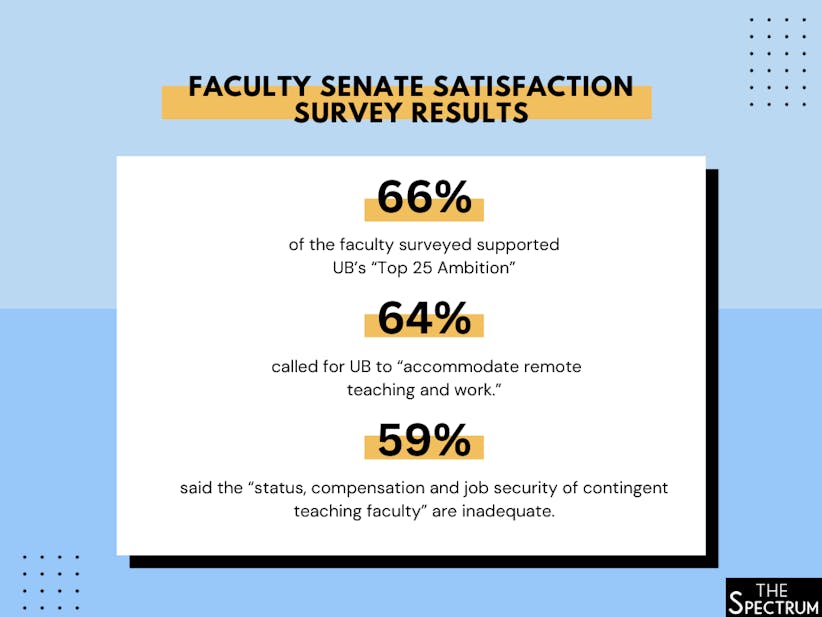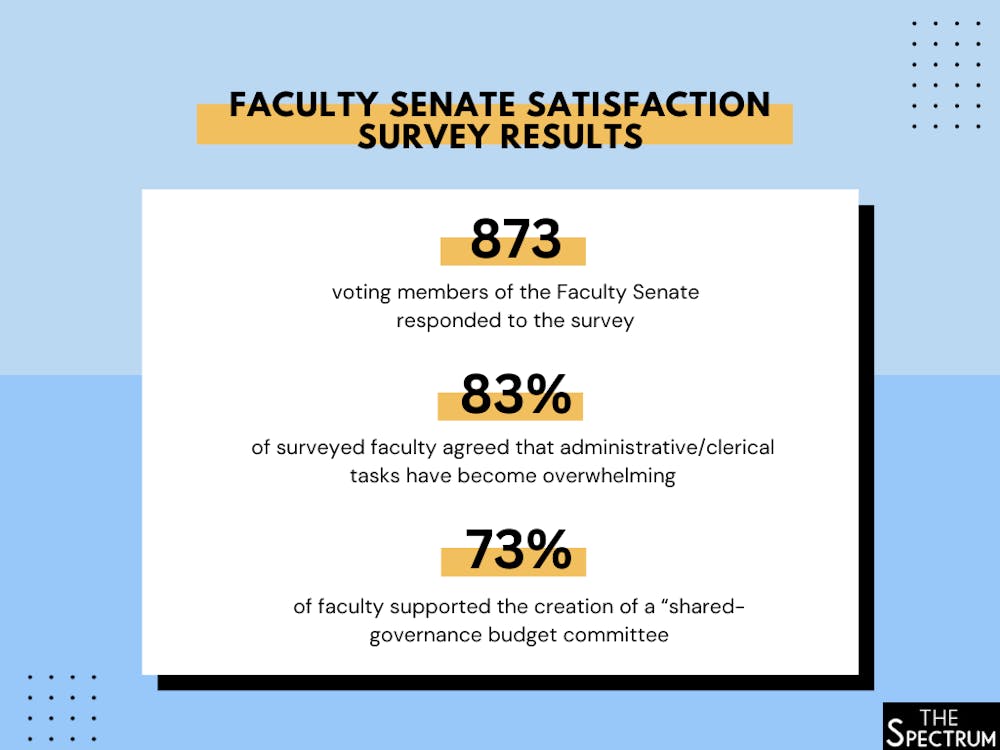Faculty at UB are concerned about “overwhelming” clerical tasks, retention of teaching faculty, stability within their departments and shared governance, responses to a Faculty Senate survey obtained by The Spectrum show.
853 voting members of the Faculty Senate responded to the survey, which was conducted by email this April. (UB has 1,678 full-time faculty members, according to the UB Factbook.) The survey covered topics ranging from faculty performance and satisfaction to PhD funding, tenure and research. Results were released to voting faculty members on Oct. 25.
83% of surveyed faculty agreed that “administrative/clerical tasks have become overwhelming and make it difficult for faculty to fulfill their teaching and research obligations.” 59% said the “status, compensation and job security of contingent teaching faculty” are inadequate.
73% of faculty supported the creation of a “shared-governance budget committee,” with access to information about the finances of UB and its associated foundations, and the ability to make recommendations to university administrators.
The Faculty Senate and faculty unions have previously called for more financial transparency within UB, especially from the UB Foundation. In 2016, the Faculty Senate called for the UB Foundation to name a faculty member, a professional staff member and a student to its board. Foundation leadership turned down the request. The UB Foundation, which is the wealthiest non-profit organization in Western New York, has fought attempts to subject it to the same disclosure requirements as the university, such as New York’s Freedom of Information Law.
89% of respondents supported increasing the number of tenure-track faculty, 88% supported a requirement that all schools within the university “draw up a set of promotion rules and guidelines for clinical and teaching faculty,” and 75% said UB “should develop a form of tenure for clinical and teaching faculty.” Currently, UB bases tenure decisions primarily on research activities.
Just over half of respondents said university administration is “proactively engaged in mentoring and retaining” faculty from under-represented minorities, and 70% said UB “upholds faculty’s privilege to pursue their teaching ideas, practices, and responsibilities.”
66% of the faculty surveyed supported UB’s “Top 25 Ambition,” a set of goals aimed at improving the university’s academic stature, research output and physical condition, with the goal of ranking in the nation’s top 25 public research universities.

64% called for UB to “accommodate remote teaching and work.” Currently, SUNY policy allows for employees without special accommodations to work remotely for up to 50% of each pay period, with approval from a supervisor.
UB spokesperson John Della Contrada declined to comment on the survey.
Master’s and doctoral students share many of the concerns expressed by faculty, Lawrence Mullen, president of UB’s Graduate Student Employee Union (GSEU), said.
“It’s a general sense that the university is applying pressure down,” Mullen said. “Because they refuse to fund instruction, they refuse to make more tenure track lines available, and they refuse to make more graduate assistant and teaching assistantship lines available.”
“We’re doing those exact same things, and it can be frustrating sometimes, because we could have this sense of solidarity, right? What we feel is overworking,” Mullen said.
The news desk can be reached at news@ubspectrum.com
Hannah Rashad is an assistant news editor.





